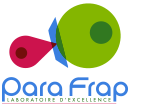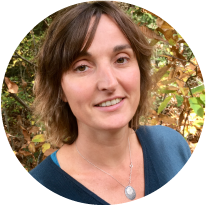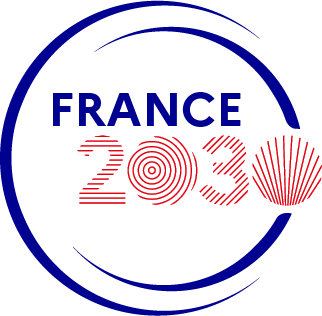

 |
Anna COHUET |
|
|
Information |
||
| MIVEGEC | ||
| MoMa (Mosquito X Malaria Interactions) | ||
| Montpellier | ||
| 0000-0002-1876-5656 | ||
| This email address is being protected from spambots. You need JavaScript enabled to view it. | ||
| https://mivegec.fr/ | ||
| @mivegec | ||
|
Scientific interests and projects |
||
|
I have special interest in the ecology of malaria transmission and I have been working on the genetic and environmental determinants of vectorial capacity and competence in malaria vectors, especially focusing on the An. gambiae - P. falciparum system. An ongoing effort in my group is to account for the natural diversity of vector mosquitoes-malaria parasite associations and to perform experiments in conditions that reflect nature as much as possible. I currently develop my field research projects in Burkina Faso on transmission-blocking interventions and on the behavioral effect of infection in interactions with malaria control tools. I lead the MoMa team (Mosquito-Malaria interactions), which is composed of 5 other permanent members and postdocs and students. We believe that malaria transmission is best studied through a variety of means combining the relevance of the field and the power of model systems. Therefore, we have developed platforms in Cameroon and Burkina Faso for experimental infection of mosquito vectors by P. falciparum isolates collected from naturally infected patients. For instance, such facilities allow measuring the efficacy of transmission-blocking interventions. Mosquitoes can also be exposed to specific environmental conditions, including exposition to insecticides for measuring their effect, or the insect can be fed before and after a drug treatment by the patient. In addition, an avian malaria system ( Plasmodium relictum - Culex pipiens ) was developed in Montpellier, which could be especially useful to overcome ethical or technical limitations specific to the inclusion of human patients. Recognising the power of genomics, we are in the midst of adapting our current enquiry methods to the genomics era. We have described the use of single cell transcriptomics directly in parasites from naturally infected carriers, which opens the possibility of studying disease and transmission relevant phenotypes directly in infected patients and bridge the gap between lab and field investigations. We therefore have a rich field and lab experimental scope through which many aspects of malaria biology could be studied within new collaborations. |
||
|
Top 5 publications of the last 5 years |
||
|
1. Carrasco D, Lefèvre T, Moiroux N, Pennetier C, Chandre F, Cohuet A. Behavioural adaptations of mosquito vectors to insecticide control. Curr Opin Insect Sci. 2019 Aug;34:48-54. DOI 10.1016/j.cois.2019.03.005. 2. Mulatier M, Camara S, Koffi A, Carrasco D, Porciani A, Chandre F, Moiroux N, Lefevre T, Dabiré R, Assi S, Ahoua Alou LP, Dormont L, Pennetier C, Cohuet A. Efficacy of vector control tools against malaria-infected mosquitoes. Sci Rep. 2019 Apr 30;9(1):6664. DOI 10.1038/s41598-019-43195-6. 3. Stone WJR, Campo JJ, Ouédraogo AL, Meerstein-Kessel L, Morlais I, Da D, Cohuet A, et al. Unravelling the immune signature of Plasmodium falciparum transmission-reducing immunity. Nature communications 2018 Feb 8;9(1):558.) DOI 10.1038/s41467-017-02646-2 4. Alout H, Roche B, Dabiré RK, Cohuet A. Consequences of insecticide resistance on malaria transmission. PLoS Pathog. 2017 Sep 7;13(9):e1006499. DOI 10.1371/journal.ppat.1006499 5. Churcher TS, Trape JF, Cohuet A: Human-to-mosquito transmission efficiency increases as malaria is controlled. Nature communications 2015, 6:6054. 10.1038/ncomms7054 |
||
The INSERM workshop “Modern methods in molecular parasitology” will take place in Montpellier, France, from 4–6 November 2026. This event will bring together leading experts in...
The 15th CAPF (French Anti-Parasitic and Anti-Fungal Consortium) workshop will take place on 16–17 March 2026 in Strasbourg (France). This event is an excellent opportunity for students and postdoctoral researchers to participate and contribute...
Call for Applications: New Junior Research Groups at Institut Pasteur The Institut Pasteur has launched an international call to recruit new junior group leaders.This is a unique opportunity for high-potential scientists to...
JOB : Ingénieur·e d’étude / Research Engineer – Mosquito Immunity (IBMC, Strasbourg) 🇫🇷 Le laboratoire Mosquito Immune Responses recrute un·e ingénieur·e d’étude à l’IBMC (Strasbourg). La personne recrutée sera en...
Applications are now open for the 2026 Biology of Parasitism (BoP) course, taking place June 12–July 23, 2026 at the Marine Biological Laboratory in Woods Hole, MA.This intensive 6-week program offers PhD students and postdocs advanced training in...
Newcastle University offers a full-time, fixed-term position (3 years) for a Research Assistant or Research Associate in Molecular Parasitology — funded by the Medical Research Council (MRC). About the Opportunity Location:...
Multidisciplinary PhD opportunity in the fields of infectious diseases, gene regulations and molecular signalisation. Fully Funded 4-Year PhD at the University of York A fully funded PhD opportunity is available at the...
The EMBO Workshop 2025 “Host–Parasite Relationship: From Mechanisms to Control Strategies”, took place from October 5–8, 2025, on the beautiful Île des Embiez (France). Organized within the framework of the LabEx ParaFrap and...
Postdoc (M/F) in molecular and biochemical parasitology (Toxoplasma gondii) A 24-month post-doctoral position starting on January 2026 and funded by the French National Research Agency (ANR) is available in the in the...
Postdoc (M/F) Molecular and cell biology in Trypanosoma brucei A 24-month post-doctoral position starting on November 1st 2025 (or before) and funded by the French National Research Agency (ANR) is available in the...

© 2023. All rights reserved MLCOM
Notre site LabEx ParaFrap utilise des cookies pour réaliser des statistiques de visites, partager des contenus sur les réseaux sociaux et améliorer votre expérience. En refusant les cookies, certains services seront amenés à ne pas fonctionner correctement. Nous conservons votre choix pendant 30 jours. Vous pouvez changer d'avis en cliquant sur le bouton 'Cookies' en bas à gauche de chaque page de notre site. En savoir plus
Ce site utilise des cookies pour assurer son bon fonctionnement et ne peuvent pas être désactivés de nos systèmes. Nous ne les utilisons pas à des fins publicitaires. Si ces cookies sont bloqués, certaines parties du site ne pourront pas fonctionner.
Ce site utilise des cookies de mesure et d’analyse d’audience, tels que Google Analytics et Google Ads, afin d’évaluer et d’améliorer notre site internet.
Ce site utilise des composants tiers, tels que NotAllowedScript699318b71c82dReCAPTCHA, Google NotAllowedScript699318b71c531Maps, MailChimp ou Calameo, qui peuvent déposer des cookies sur votre machine. Si vous décider de bloquer un composant, le contenu ne s’affichera pas
Des plug-ins de réseaux sociaux et de vidéos, qui exploitent des cookies, sont présents sur ce site web. Ils permettent d’améliorer la convivialité et la promotion du site grâce à différentes interactions sociales.
Ce site web utilise un certain nombre de cookies pour gérer, par exemple, les sessions utilisateurs.

